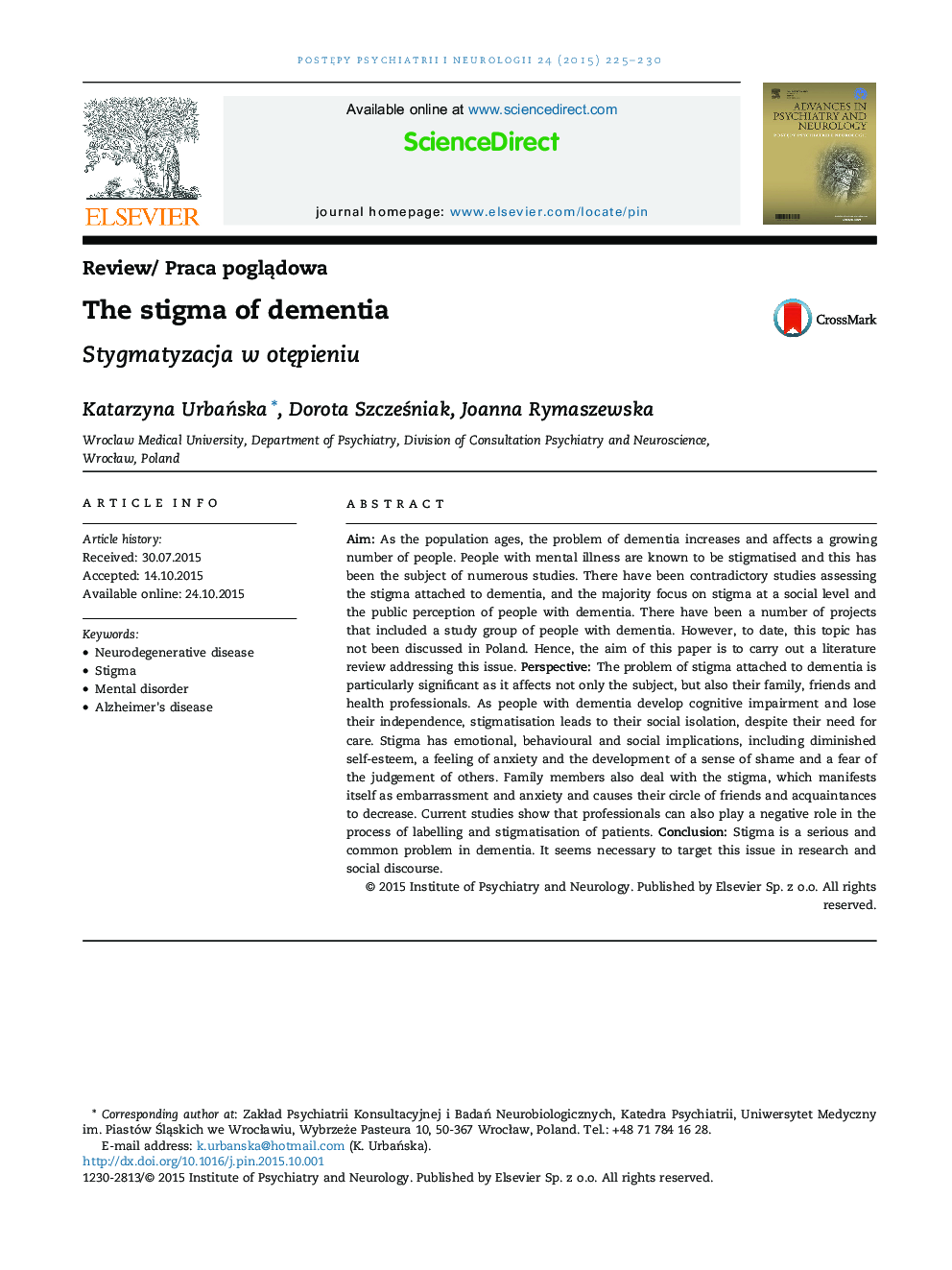| Article ID | Journal | Published Year | Pages | File Type |
|---|---|---|---|---|
| 331887 | Postepy Psychiatrii i Neurologii | 2015 | 6 Pages |
AimAs the population ages, the problem of dementia increases and affects a growing number of people. People with mental illness are known to be stigmatised and this has been the subject of numerous studies. There have been contradictory studies assessing the stigma attached to dementia, and the majority focus on stigma at a social level and the public perception of people with dementia. There have been a number of projects that included a study group of people with dementia. However, to date, this topic has not been discussed in Poland. Hence, the aim of this paper is to carry out a literature review addressing this issue.PerspectiveThe problem of stigma attached to dementia is particularly significant as it affects not only the subject, but also their family, friends and health professionals. As people with dementia develop cognitive impairment and lose their independence, stigmatisation leads to their social isolation, despite their need for care. Stigma has emotional, behavioural and social implications, including diminished self-esteem, a feeling of anxiety and the development of a sense of shame and a fear of the judgement of others. Family members also deal with the stigma, which manifests itself as embarrassment and anxiety and causes their circle of friends and acquaintances to decrease. Current studies show that professionals can also play a negative role in the process of labelling and stigmatisation of patients.ConclusionStigma is a serious and common problem in dementia. It seems necessary to target this issue in research and social discourse.
